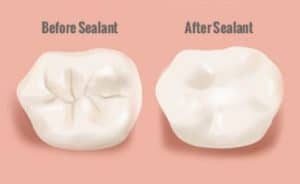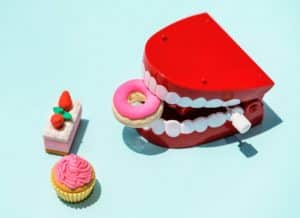
Preventive care is important to ensure your dental health. But, sometimes preventive care simply isn’t enough to stop issues from popping up, says Dr. David Brusky.
“I stress the importance of preventive care with all of my patients,” says Dr. Brusky. “But despite our best at-home preventive care techniques, issues can still appear. It’s the job of the dentist and his team to help patients understand the importance of both an excellent at-home routine, as well as regular check-ups at the dental office.”
Many patients may think that if they are brushing and flossing their teeth regularly, there is no need to visit a dentist every six months. But that is simply not the case. Even with regular brushing and flossing, dental issues can show up, and without the trained eye of a dentist, they may become advanced before you notice them.
Did you know, for instance, that periodontal disease affects an average of 47 percent of the population? In adults over the age of 65, that increases to 70 percent. It is often painless and without signs that might indicate a problem to the average person – that is, until the teeth start to become loose and are ready to fall out. But the trained eye of a dental hygienist or dentist can spot something that may be amiss, and correct it before serious problems set in.
Periodontal disease can lead to tooth and bone loss and has been linked to serious conditions such as diabetes, stroke and heart disease. By regularly visiting a dentist, you can ensure you get the treatment you need right away and hopefully avoid painful and expensive treatments later.
“We can use the analogy of a car when thinking about our mouths,” says Dr. Brusky. “You can own the most beautiful car in the world, but if you only focus on washing and waxing it, eventually the car won’t run as well as it should. You have to look under the hood every once in a while to ensure it will run correctly.”
The same is true for your oral health. It’s important for a dentist to be able to examine your mouth, take X-ray images to ensure everything is healthy and to properly clean your teeth.
“It’s the responsibility of the dentist to care for your tooth from root to tip,” says Dr. Brusky. “You can’t see what lurks beneath the gum line, but I can. And you may be the greatest tooth brusher in the world, but plaque and tartar can still build-up, leading to tooth decay and gum disease.”
Think about the activities your mouth is involved in during the course of a day. Eating, drinking, speaking, even just breathing; all have an effect on the health of your mouth, and its daily wear and tear. That daily wear can sometimes lead to the need for major dental care if you go too long in between visits to your dentist.
“Tooth wear often goes unnoticed by patients because it happens gradually,” says Dr. Brusky. “The pressure you put on your teeth every day simply by eating can be enough to begin to wear down the enamel of your teeth over time. And if you crunch ice regularly, chew on pencils or pens, use your mouth as a tool, or find yourself clenching or grinding your teeth, your enamel will wear down even faster. Most people have no clue that they are grinding their teeth while sleeping.”
There are also certain health conditions that may influence the health of your mouth, as well. Do you suffer from acid reflux disease? GERD is increasingly common, and causes acid from the stomach to be pushed back up into the esophagus, and eventually into the mouth. Because this acid comes into constant contact with your teeth, it can demineralize them. You may not notice it because it most often occurs on the cheek side of the teeth. He is trained to diagnose what may be causing tooth erosion based on what areas of the teeth exhibit the erosion.
Certain medications can also lead to dry mouth. Saliva is nature’s way of keeping your mouth clean. When there isn’t enough saliva to wash away harmful bacteria, we can see an increase in plaque build-up, leading to decay and gum disease. You may be suffering from a dry mouth and not even know it, thereby increasing your risk of gum disease and tooth decay.
It’s also possible that you can experience damage to older restorations. For instance, you may experience sudden mouth pain, only to realize that your tooth has cracked or broken. If you had been maintaining regular check-ups with your dentist, he may have been able to tell you that a previous filling was weakening and needed to be repaired. Rather than having a simple repair job done, you now might need to have a root canal and crown to repair the damage.
If you don’t take proper care of your teeth and manage your oral care, you may find yourself in an unexpectedly painful and expensive situation. However, if you maintain proper home preventive care, paired with proper professional care, you can limit how often you’ll need to replace or repair teeth.
If it’s been a while since your last dental visit, what are you waiting for? Schedule an appointment today in Green Bay, WI, and create a dental relationship that will ensure the health of your mouth for years to come.






